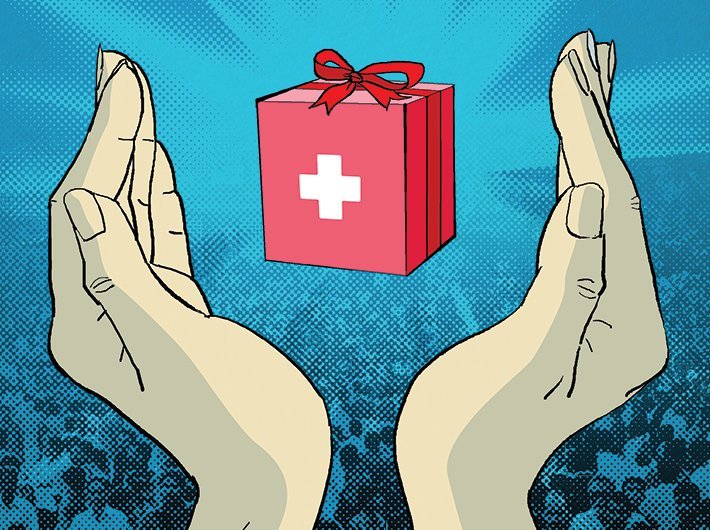The Covid-19 pandemic has disrupted economies and healthcare systems across the world. Even in the countries, like the US, that have the highest spend on healthcare and public health emergency preparedness, the impact of coronavirus pandemic on health and livelihoods of people has been tremendous. There are three key aspects to fighting a pandemic, viz. behavioural changes, environmental preparedness, and healthcare resilience. The nimble and quick spread of coronavirus sent governments into a firefighting mode that focused mainly on the behavioural and environmental aspects of disease response. However, they failed to strengthen healthcare delivery mechanisms, the foundation on which the other two responses can thrive. The catastrophe has exposed the vulnerabilities of the global healthcare system and calls for significant changes in the way healthcare is practised and delivered.
The top four trends that can build healthcare resilience in the future are preventive care, telehealth, patient engagement, and home healthcare.
1. Preventive Care
The focus of most national health systems is skewed towards the curative aspects of care rather than the preventive ones. Most countries spend less than 10% of their entire healthcare expenditure on preventive care. In India, this spend is as low as 7%. The Covid-19 pandemic has highlighted the need for robust preventive care strategies and systems to not only ensure the health of the population, but also minimize the stress caused by the spread of disease on healthcare delivery. Post this crisis, there will be a greater focus on health promotion strategies such as driving behavior change, improving health literacy, reducing information biases, and empowering communities through stronger primary care systems.
2. Telehealth and Telemedicine
The increasedadoption of telemedicine and telehealth was one of the first Covid-19-induced changes in healthcare delivery. The US implemented policy changes to promote the use of telehealth for acute, chronic, as well as primary care delivery. India’s Ministry of Health & Family Welfare (MoHFW) also launched a robust framework to promote the use of telehealth to bridge the healthcare delivery gaps caused by Covid-19. These changes will significantly reduce the risk caused by unnecessary exposures to illness for patients as well as healthcare providers.According to a survey done by McKinsey, the use of telehealth in the US alone grew from 11% in 2019 to a whopping 46% in 2020 and this trend is likely to continue.
3. Patient Engagement
Successful patient engagement initiatives empower patients to be in-charge of their own health and take part in the decision-making process related to their care. The concept also ensures that the healthcare interactions are not just limited to the doctor’s office but extend beyond the realms of a traditional provider-patient relationship. Covid-19 has significantly increased the workload of healthcare providers, who are now functioning at near total capacity. This has created an urgent need to drive patient engagement activities that empower patients to be in the driver’s seat and reduce the stress on the healthcare delivery systems. Going forward, patient engagement will also help in administering successful health promotion programs and reducing the rate of hospitalizations.
4. Home Healthcare
Technology innovations such as the Internet of Medical Things (IoMT) have allowed for enhanced communication and connection between healthcare providers and patients,making home healthcare very efficient in recent years. The concept is especially useful for at-risk populations such as the elderly or disabled, who are unable to visit their healthcare providers for frequent check-ups or treatments. With the rapid spread of Covid-19, a lot of people continue to be confined to their homes leading to a surge in the need and demand for home healthcare services. Eventually, home healthcare will become an integral part of the healthcare delivery channel, ensuring increased convenience, minimized risk, and reduced healthcare costs for patients.
Way Forward
Even before the pandemic, healthcare systems throughout the world had been struggling with outdated methods and practices that focused on the traditional aspects of care delivery. Research constantly suggested the dissatisfaction of younger generations including the millennials and Gen Z with the traditional healthcare processes. Covid-19 has pushed governments and care providers to think out-of-the-box and implement innovative ways to practice medicine. These changes will not only improve the efficiency of care provided, but also help in building stronger, more resilient healthcare systems that can combat any type of health emergency.
Chawla is currently working as the Director of Product Management & Marketing at Rialtes Technologies, a global technology consulting company.
